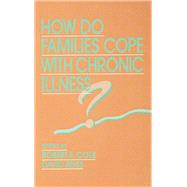- ISBN: 9780805811117 | 0805811117
- Cover: Hardcover
- Copyright: 11/1/1992
Because chronic disorder is becoming an ordinary feature of family life and development, understanding its impact has become critical. This volume, and the conference proceedings it reports, represents a major effort to examine the family's response to chronic physical or psychopathological illness in one or more of its members. Recent data are revising our notions of chronic illness. Evidence is mounting that chronic psychiatric disorders reflect, in part, abnormalities of brain structure and function. In this sense, they are, in part, medical disorders. On the other hand, a number of traditionally labeled medical disorders produce a broad range of psychological symptoms and are exquisitely sensitive to psychosocial influences. Families undergo a complex process of adaptation during which their response to stress and their fundamental beliefs about learning and parenting change. These beliefs endure and are difficult to alter. By examining the processes in a wide range of chronic conditions, this volume helps to identify the common, underlying processes of adaptation. The first three chapters concern the families' responses to disorders that are distinctly medical; the next three focus on families' responses to "grey zone" disorders or anomalies that appear early in life, minor physical anomalies, and communication handicaps; and one chapter focuses exclusively on schizophrenia. The last chapter reflects an effort to develop a model based on the experience of researchers with both psychiatric and medical illness.







